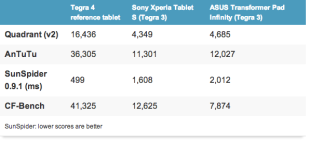NEWS Italian voters delivered a rousing anti-austerity message and a strong rebuke to the existing political order in national elections on Monday, plunging the country into political paralysis after results failed to produce a clear winner. Rachel Donadio reports from Rome.
The U.S. secretary of state, John Kerry, said on Monday that the Obama administration has been considering new steps to increase support for the Syrian opposition and hasten the departure of President Bashar al-Assad, and that some of them would be decided at an international conference in Rome this week. Michael R. Gordon reports from Berlin, and Anne Barnard from Beirut, Lebanon.
Britain’s most senior Roman Catholic cleric, Cardinal Keith O’Brien, announced his resignation on Monday, a day after being accused of “inappropriate acts” with priests, saying he would not attend the conclave to elect a new pope. Rachel Donadio reports from Vatican City, and John F. Burns from London.
Talks between Iran and six world powers over its nuclear program resume on Tuesday after a break of eight months, but there is a general atmosphere of gloom about their prospects for success, even if narrowly defined. Steven Erlanger reports from Almaty, Kazakhstan.
About 30 percent of heart attacks, strokes and deaths from heart disease can be prevented in people at high risk if they switch to a Mediterranean diet rich in olive oil, nuts, beans, fish, fruits and vegetables, and even drink wine with meals, a large and rigorous new study has found. Gina Kolata reports.
The furniture giant Ikea joined a growing list of brands that have been touched by Europe’s food scandal on Monday and withdrew its signature Swedish meatballs from its markets and cafeterias across most of Europe after one batch was found to contain traces of horse meat. Stephen Castle reports from London, and Andrew Higgins from Brussels.
The Japanese government is set to loosen its grip on Japan Tobacco, one of the world’s largest tobacco companies, by selling a third of its stake in a sale that will net the country about $10 billion. Hiroko Tabuchi reports from Tokyo.
FASHION Sites like Marc Jacobs and House of Holland hope that social networking will improve their online sales. Fleur Britten reports.
ARTS Wolfgang Sawallisch, one of the last of the old-school German conductors, who led the Philadelphia Orchestra for nearly a decade and the Bavarian State Opera in Munich for two decades before that, died on Friday at his home in Grassau, Germany. He was 89. Annette Midgette reports.
SPORTS For two countries that have a long history of tangling politically, often extending that rivalry into sports, the cooperation this week between the U.S. and Russian ski teams at the Rosa Khutor Alpine Resort could strike many as unexpected. Brian Pinelli reports from Krasnaya Polyana, Russia.












